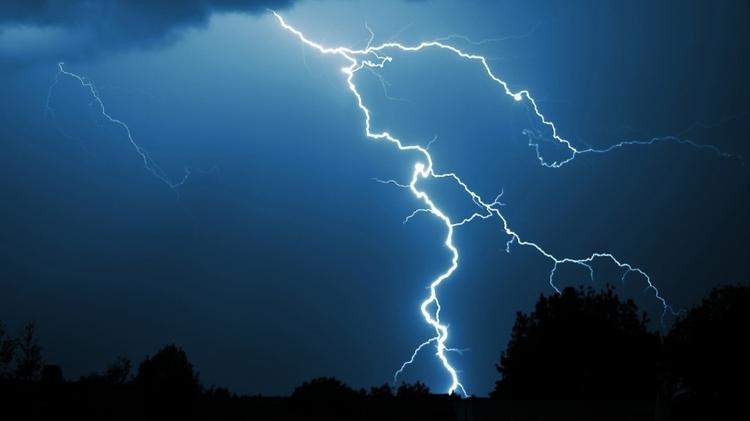This is part of the online version of the Climate Crisis newsletter sent out today (11). The full subscriber-only version also outlines the failure of thermoelectric power plants approved at the October 2021 emergency auction in Brazil – a victory for the climate and a future relief for the consumer’s pocket – and talks about the outcome of the investigation. The death of three giraffes in a park in Rio de Janeiro. Would you like to receive the full newsletter with the main column and additional information by email next week? Click here and register.
******
By linking fossil fuels to inflationary pressures, the bill just passed in the US Senate will give a boost to renewable energy. This move puts the world’s largest emitter of greenhouse gases on track to reduce emissions by 45% (relative to 2005 levels) and meet two-thirds of the Paris Agreement climate target for 2030.
With Senate approval, the next steps—a vote in the House and the president’s sanction—are secured for the law to come into effect.
In the previous administration, I think the rest of the world lost faith in the United States about our commitment to climate. This not only restores faith in the United States, but also creates a space of opportunity for other countries to start thinking about.”
White House National Climate Adviser Gina McCarthy told MSNBC
From a climate standpoint, the bill isn’t perfect. While most environmentalists welcome the approval, there is much criticism as the measure combines new oil and gas projects with the development of renewable energy, the biggest causes of global warming.
The law requires the Department of the Interior to lease approximately 2 million acres of federal land and up to 60 million acres of marine land each year for fossil fuel projects. Compliance with these quotas will allow the lease of federal land for renewable energies on land and offshore.
This is probably the bait that allowed the law to pass Congress and heavily penetrated by the fossil lobby. This is because there is no guarantee that these acres will actually be rented if the fossil fuel industry does not want them. It is also not possible to guarantee that the requested regions will supply oil or gas. The companies’ decision will be based on demand, and that’s exactly what the legislative package has been acting on most strongly.
The proposal offers incentives for decarbonisation, rather than focusing solely on penalizing issuers. Low- and middle-income citizens will receive a tax credit of $4,000 for purchasing used electric or hybrid vehicles and $7,500 for new hybrid or electric vehicles. The government will also distribute $9 billion in discounts to consumers on the purchase of energy-efficient appliances.
Various sectors of the economy will be affected. Approximately US$250 billion will be funded for renewable energy projects, US$60 billion will be spent on decarbonizing the heavy steel, cement and aluminum industries; this amount will be used to support climate justice in vulnerable communities. Forest protection and low-carbon agriculture projects will receive $20 billion in support.
“This bill is apparently the largest investment in climate action in the United States,” says Brian O’Callaghan, principal investigator of the Economic Recovery project at Oxford University. “[O projeto] It takes a largely market-friendly approach, focused on accelerating demand for the core products needed for transition; this should accelerate technological progress and create an incentive for even more private investment. Falling technology costs in the US should also lead to lower costs globally.”
an analysis think tank Energy Innovation states that for every tonne of emissions expected from fossil fuel sources made possible by law, 24 tons of emissions will be reduced.
“This is the most important action the US has ever taken to combat climate change,” says Manish Bapna, chairman of the NGO NRDC (Natural Resources Defense Council). “This bill isn’t perfect, but from a climate pollution perspective, the positives far outweigh the negatives.”
And what else do you need to know
YOU KNOW?
August 9 is the International Day of Indigenous Peoples, proclaimed by the UN in 1994. History has been marked by mobilizations in Brazil, including an action submitted by the APIB (Expression of Brazilian Indigenous Peoples) to the Federal Public Ministry for investigation and emergency response. The dismissal of Funai president Marcelo Xavier. APIB accuses the agency’s director and officials of administrative non-compliance and a “systematic absence” of protection and assistance in demarcated areas. The leaf gives the details.
RAIN RAIN
Last week, the United Arab Emirates experienced some of the worst flooding in the country with at least 7 deaths, most of them Pakistani immigrants. It’s time this week South Koreahistorical precipitation records were broken in various parts of the country. The international press reported the death of an entire family from Seoul living in an underground apartment similar to the one in the award-winning movie Parasite (2019).
in the USA, Death valleyThe driest and hottest place in the country experienced its fourth heaviest rain in 11 days – on August 5 alone, it rained 75% of the annual volume in just 3 hours. Scientists had estimated that such rain could occur in the region only once in a thousand years.
****
READ THE FULL NEWSLETTER
source: Noticias
[author_name]
